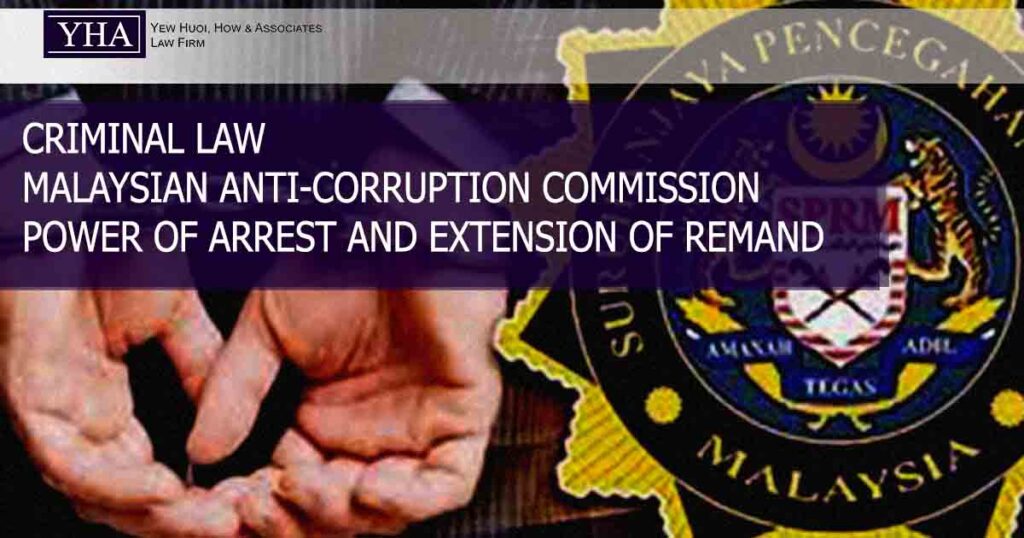The recent arrest of company directors and continued remand using Section 117 of the Criminal Procedure Code has sparked widespread unrest about the possible misuse of Malaysian Anti-Corruption Commission’s (“MACC”) power.
What are the powers of MACC on detention of suspects?
- Section 49(1) of the Malaysian Anti-Corruption Commission Act 2009 (“MACC Act 2009”) says all offences under the MACC Act are “seizable offence”(s).
- “Seizable offence” means offence which MACC officer may arrest without a warrant.
What happened after a person is detained by MACC?
- A person can be detained by the MACC for offences investigated under the MACC Act.
- However, he cannot be detained for more than 24 hours without being produced before a magistrate. This rule is set out in Article 5 clause 4 of the Federal Constitution.
What happened if he needs to be detained for more than 24 hours?
- Article 5 clause 4 of the Federal Constitution says a person cannot be detained for more than 24 hours.
- MACC is not allowed to utilize Section 117 of the Criminal Procedure Code (“CPC”) to go before a Magistrate to extend a remand pursuant to the principle of generalibus specialia derogant.
- Hence, when a person is detained and further investigation is required, MACC has to first release the person from custody on a bail or bond with or without sureties.
What happened if a person is unable to pay the bail or bond?
- The difficulty arises when a person cannot afford to pay the bail or bond requested by MACC.
- He still cannot be arrested for more than 24 hours. In such situation, a judicial review may be filed to determine what is the “reasonable sum of money” as bail and bond.
Under what circumstance can a person be produced before the Magistrate for extension of remand?
- This is set out in Section 49(2), (3) and (4) of the MACC Act 2009.
- A person can only be produced before a Magistrate when the condition of the bail or bond is broken or likely to be broken and he/she is re-arrested and not released within 24 hours.
- Keeping in mind, this only happens when there is a re-arrest.
- MACC is not allowed to produce a person before the Magistrate for extension of remand without going through the processes in Sub-Sections 49(2), (3) and (4). The Magistrate would not have power to grant remand under the circumstances.
What happened if MACC detained a person for more than 24 hours on the first arrest or re-arrest without production before a Magistrate?
- The arrest would be unlawful. The person so arrest may sue MACC for wrongful arrest
Related News:

